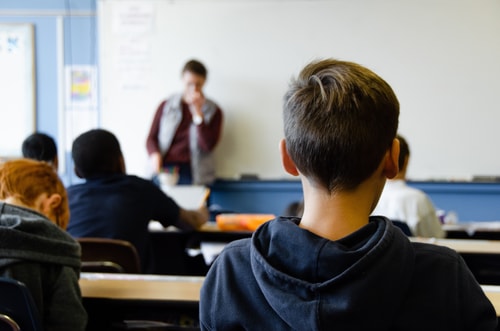Over the summer, the Evangelical Alliance surveyed 650+ evangelical parents and carers on their children’s experiences of relationship, sex and health education (RSHE) in schools in England. We are now calling on the government to tighten its guidance around RSHE.
RSHE is an area of significant interest, and often concern, for many of our members – particularly those who are parents, carers, children’s or youth workers. As the UK Government reviews its guidance into RSHE across schools in England, the Evangelical Alliance is seeking to be a voice for evangelical parents and carers within this space.
Over July and August, we conducted a survey into RSHE in England, receiving responses from 664 parents and carers from a wide variety of church denominations. The results have formed the basis of our policy engagement in this area.
What are the key findings?
The findings of the survey show the extent to which parents and carers are concerned about what is being taught in RSHE classes and highlight the desperate need for stronger government guidance around RSHE. Some of the key findings are:
Over half of respondents were at least somewhat dissatisfied with the teaching their child’s school provides on RSHE.

Nearly three-quarters of respondents say there are topics that their child’s school does not cover in an age-appropriate manner.

Most respondents have not been provided with information about external contributors and resources used in RSHE lessons by their child’s school.

Only a small proportion of respondents have been allowed to access the material their child’s school uses for RSHE ahead of the lessons.

Only a small proportion of respondents feel that their views are taken into account by their child’s school in relation to RSHE.

When asked to share more about their child’s experience of RSHE at school there was an overwhelmingly negative response. Some of the key themes that arose from the responses were:
- Parents do not feel informed of what is being taught, preventing them from being able to talk to their children at home about what they are learning at school.
- Parents do not feel listened to by their child’s school, making them unable to express any concerns they have.
- LGBT content is playing a disproportionate role in lessons in some schools, often taking precedence over teaching on heterosexual relationships or marriage.
- There is a lack of teaching on differing viewpoints, or tolerance for them, particularly those that are contrary to current cultural trends.
- Parents are unable to opt their child out of lessons that contain content they do not agree with or that they do not believe their child is ready to learn about.
What exactly are parents/carers saying about RSHE?
The following quotes highlight some of the concerns raised by parents:
“…the present teachings have meant that children who hold any other alternate view (for religious or non-religious reasons) face ridicule and even ostracism. The school’s goal should be to teach proper respect for each other’s opinions and the importance of getting along in a harmonious fashion even when others don’t think the same as you do.
“My concern is that we don’t know the content and materials being used to teach our children this very important subject. I [would] like to view the materials before my child and balance what they are being taught in school with my views and beliefs as well. It’s important to align what they are learning with our faith and beliefs.”
“…if parents can be given access to be part of the conversation in how the topics are [being] conducted [that] will be hugely important so that schools and parent[s] can better understand one another rather than creating this Us and Them.”
“…as a parent, I believe that I should be aware of what my child is learning: the curriculum and content which includes the materials and should be allowed to decide if I want my child to participate or to what degree I want her to…”
What are our recommendations?
As part of a wider review, the government have expressed their intention to carry out a public consultation into RSHE guidance in the near future. In response to the consultation and in our engagement with policymakers, we are making the following recommendations, based on the findings from the survey:
- Parents should be given access to all resources and information on external contributors used in RSHE lessons.
- RSHE should reflect diversity of views on matters of sexuality and identity.
- Curriculum guidance should provide clarity as to what teaching is expected at different ages, but flexibility for schools to determine appropriate lessons and content.
- Schools should be obligated to inform parents/carers when their child chooses to identify as a different gender whilst at school.
- Schools with a Christian ethos should be able to teach RSHE from a Christian perspective.
- Parents should have the ability to opt their child out of sex education lessons and any relationship education lessons that relate to LGBT matters.
How can you get involved?
We will keep our members informed when the government publishes its public consultation and will provide a briefing on how you can engage.
Sign up to our Everything Advocacy email list using the form below to stay in the loop.
Keeping your data secure is very important to us. By providing your personal details you agree to allow the Evangelical Alliance to contact you either on the basis of the consents you have given us or for our Legitimate Interests in accordance with current data protection regulations. We will never make your personal data available for marketing purposes to external individuals or organisations. For more information view our privacy policy or email [email protected].

Education
Advocating for children of faith in corridors of power



